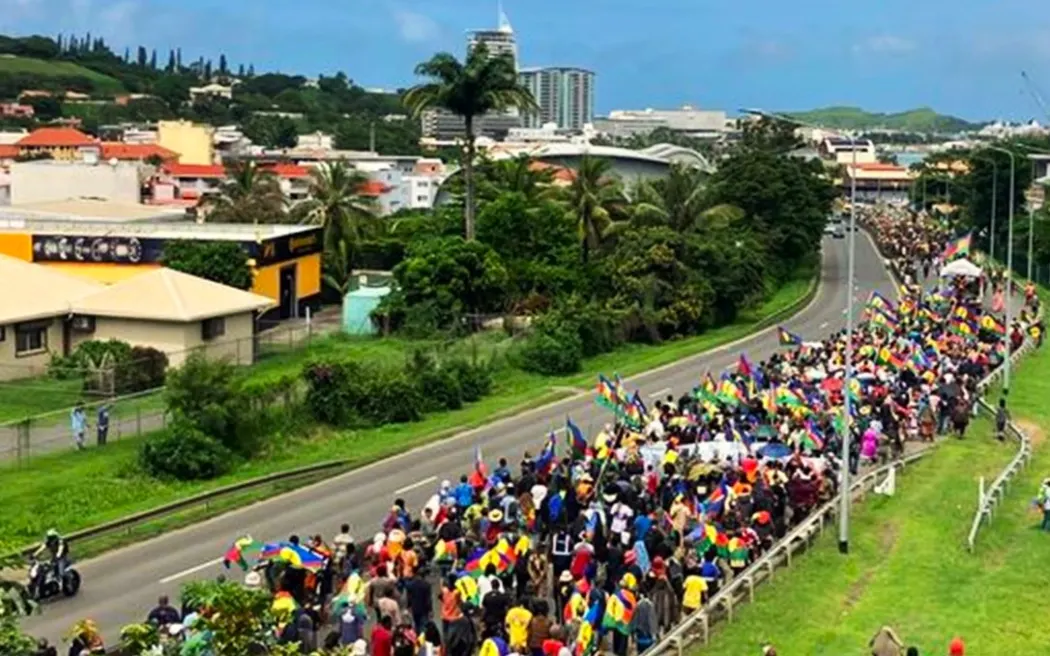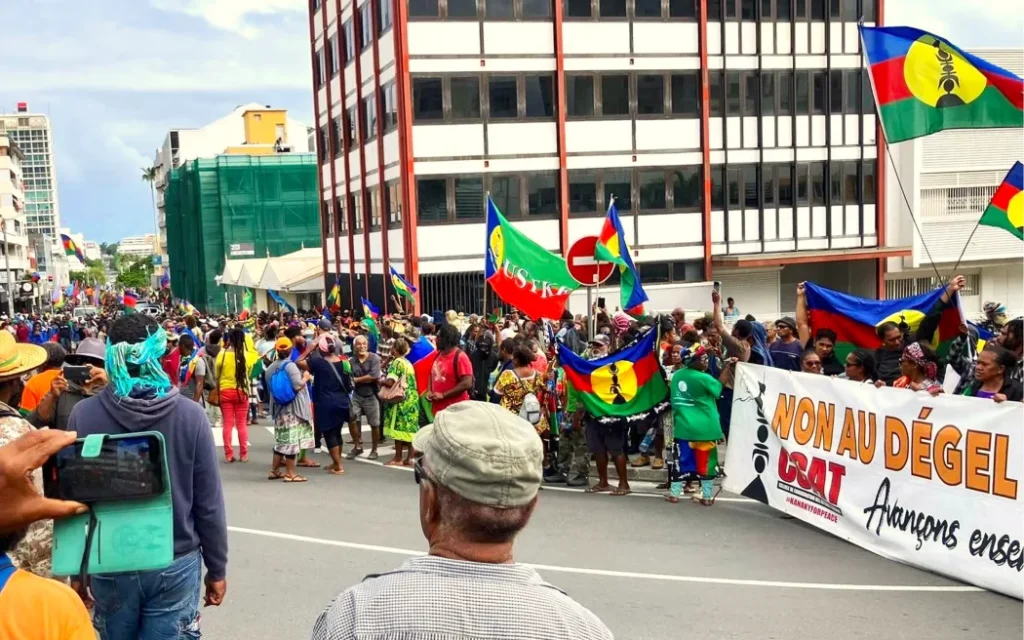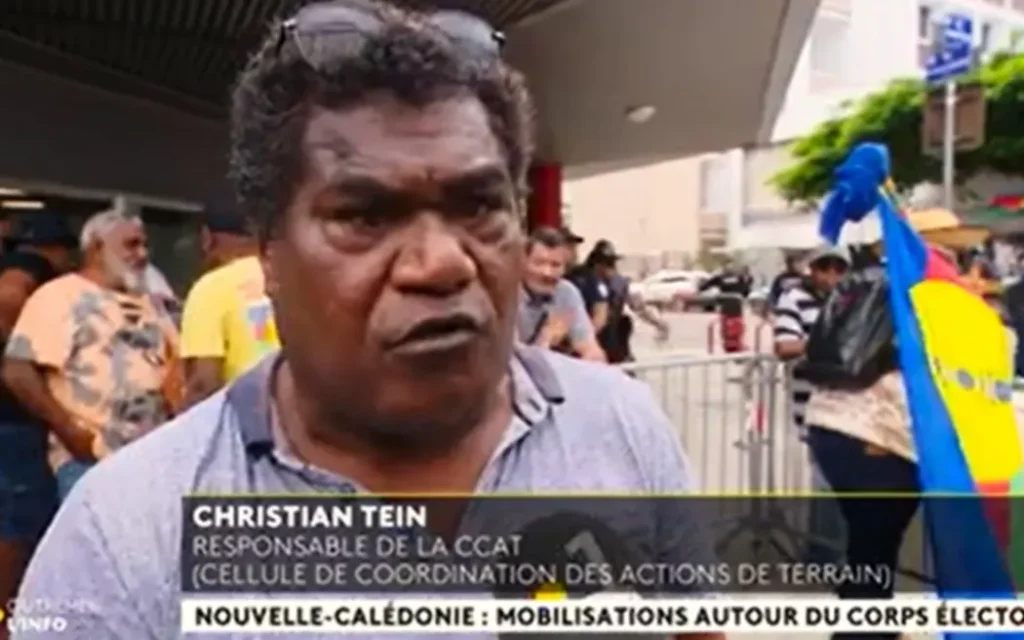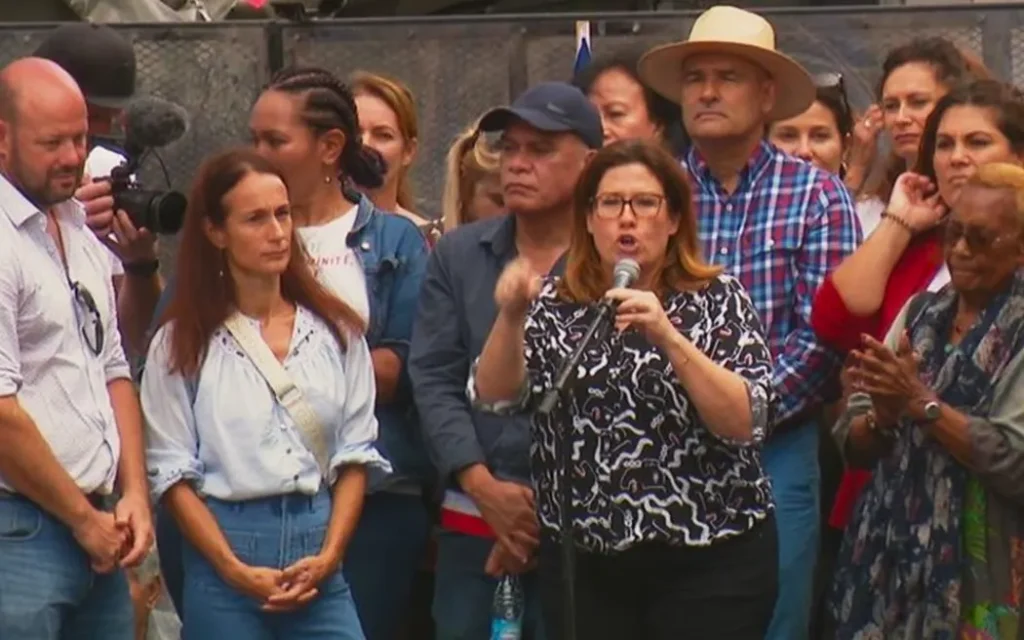
CCAT-organised Pro-independence protest march en route to central Nouméa on Thursday 28 March 2024
The halls of the French Parliament in Paris echoed with contentious debates this week, reigniting long-standing tensions in New Caledonia over the territory’s future and proposed revisions to the list of eligible voters for local elections.
Simultaneously, back in Nouméa, the capital of the French Pacific archipelago, opposing factions took to the streets in a display of fervent disagreement on Wednesday and Thursday.
Organized by the Field Action Co-ordination Cell (CCAT), aligned with the pro-independence Union Calédonienne (UC), one group voiced opposition to the proposed changes while another, responding to calls from pro-French parties Rassemblement and Les Loyalistes, advocated for “one man, one vote.”
At the heart of the controversy is a plan put forth by French Home Affairs and Overseas Minister Gérald Darmanin to overhaul the voting system for local elections.
The proposed changes would replace the current “frozen” voter list with a “sliding” clause, granting voting rights to citizens who have resided uninterrupted for at least ten years.

While Darmanin argues that these changes are essential to restore democratic principles and move beyond the restrictions imposed by the 1998 Nouméa Accord, the pro-independence movement fears that it could dilute the influence of indigenous Kanak voters.
The debate reached a boiling point on Thursday as thousands of protesters gathered in front of the local Congress in Nouméa.
Southern Province President Sonia Backès led the rally, denouncing government tax projects and asserting the demand for electoral roll changes.

Meanwhile, a separate demonstration organized by the CCAT brought thousands of participants wielding Kanaky flags, underscoring the magnitude of the electoral roll issue for the pro-independence movement.
As tensions escalate, the French Senate is set to resume debates next week, with a vote scheduled for April 2nd.
In Nouméa, the atmosphere remains charged as both sides stand firm in their convictions, with security forces deployed to prevent any clashes between the opposing groups.
